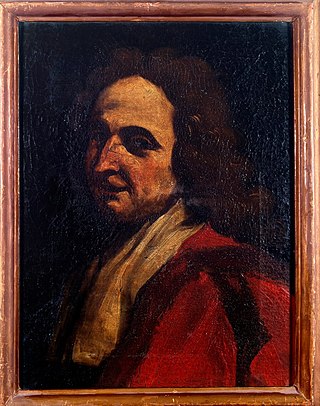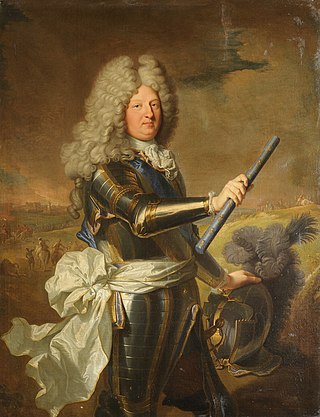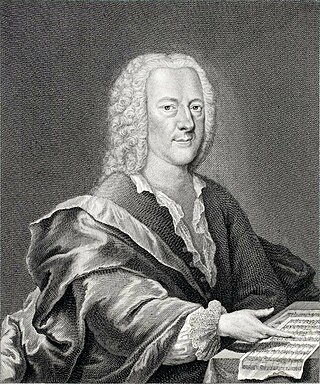Related Research Articles

Orpheus in the Underworld and Orpheus in Hell are English names for Orphée aux enfers, a comic opera with music by Jacques Offenbach and words by Hector Crémieux and Ludovic Halévy. It was first performed as a two-act "opéra bouffon" at the Théâtre des Bouffes-Parisiens, Paris, on 21 October 1858, and was extensively revised and expanded in a four-act "opéra féerie" version, presented at the Théâtre de la Gaîté, Paris, on 7 February 1874.

Orfeo ed Euridice is an opera composed by Christoph Willibald Gluck, based on the myth of Orpheus and set to a libretto by Ranieri de' Calzabigi. It belongs to the genre of the azione teatrale, meaning an opera on a mythological subject with choruses and dancing. The piece was first performed at the Burgtheater in Vienna on 5 October 1762, in the presence of Empress Maria Theresa. Orfeo ed Euridice is the first of Gluck's "reform" operas, in which he attempted to replace the abstruse plots and overly complex music of opera seria with a "noble simplicity" in both the music and the drama.

Stefano Landi was an Italian composer and teacher of the early Baroque Roman School. He was an influential early composer of opera, and wrote the earliest opera on a historical subject: Il Sant'Alessio (1632).

Il Sant'Alessio is an opera in three acts composed by Stefano Landi in 1631 with a libretto by Giulio Rospigliosi. Its first performance was probably in February 1632.
Orfeo is Italian for Orpheus, a figure in Greek mythology who was chief among poets and musicians.

La descente d'Orphée aux enfers H.488 is an incomplete chamber opera in two acts by the French composer Marc-Antoine Charpentier. It was probably composed in early 1686 and performed either in the apartments of the Dauphin that spring or at Fontainebleau in the autumn. Charpentier himself sang the title role, joined by musicians of Mademoiselle de Guise and members of the Dauphin's little ensemble; it was Charpentier's last appearance with this ensemble.

Le carnaval de Venise is a comédie-lyrique in a prologue and three acts by the French composer André Campra. The libretto is by Jean-François Regnard. It was first performed on 20 January 1699 by the Académie royale de musique in the Salle du Palais-Royal in Paris. Campra dedicated the work to Louis, Grand Dauphin, heir apparent to the French throne, who enjoyed it and had it staged again in February 1711, shortly before his death. In one critic's assessment: "In a magisterial act of conflation, this composer blends the styles of Lully, Lalande, Monteverdi and Cavalli and manages also to foreshadow Handel and Rameau. He dreamt up a multi-hued score, capable of recapturing in Paris both the carnival spirit in general and that of the legendary Venice in particular."

The ancient legend of Orpheus and Eurydice concerns the fateful love of Orpheus of Thrace for the beautiful Eurydice. Orpheus was the son of Oeagrus and the muse Calliope. It may be a late addition to the Orpheus myths, as the latter cult-title suggests those attached to Persephone. The subject is among the most frequently retold of all Greek myths, being featured in numerous works of literature, operas, ballets, paintings, plays, musicals, and more recently, films and video games.
Orfeo (Orpheus) is an opera in three acts by the Italian composer Antonio Sartorio. The libretto, by Aurelio Aureli, is based on the myth of Orpheus and Eurydice. It was first performed at the Teatro San Salvatore, Venice in 1672. With its clear division between arias and recitative, the work marks a transition in style between the Venetian opera of Francesco Cavalli and the new form of opera seria. Modern reactions to the work have been mixed, with Tim Carter describing it as "a fairly dismal example of a genre with all the symptoms of terminal decline...[Orfeo]'s journey to Hades seems almost a Sunday-school outing...Whether satire or not, this is indeed a sorry tale."
Euridice is an opera in a prologue and one act by the Italian composer Giulio Caccini. The libretto, by Ottavio Rinuccini, had already been set by Caccini's rival Jacopo Peri in 1600. Caccini's version of Euridice was first performed at the Pitti Palace, Florence, on 5 December 1602. Caccini hurriedly prepared the score for the press and published it six weeks before Peri's version appeared.

Orfeo (Orpheus) is an opera in three acts, a prologue and an epilogue by the Italian composer Luigi Rossi. The libretto, by Francesco Buti, is based on the myth of Orpheus and Eurydice. Orfeo premiered at the Théâtre du Palais-Royal in Paris on 2 March 1647. It was one of the earliest operas to be staged in France.

Orpheus is an opera in three acts by the German composer Georg Philipp Telemann. It was first performed in a concert version at the Oper am Gänsemarkt in Hamburg on 9 March 1726. The anonymous libretto is based on the 1690 opera Orphée by Michel Duboullay, originally set by the French composer Louis Lully. Most of the work is in German but it also contains passages in French and Italian drawn from famous operas by Handel and Jean-Baptiste Lully. The music to these words is Telemann's own, however. The manuscript score of Telemann's Orpheus was not rediscovered until the late 20th century.

In Greek mythology, Orpheus was a Thracian bard, legendary musician and prophet. He was also a renowned poet and, according to the legend, travelled with Jason and the Argonauts in search of the Golden Fleece, and even descended into the underworld of Hades, to recover his lost wife Eurydice.
Il ballo delle ingrate is a semi-dramatic ballet by the Italian composer Claudio Monteverdi set to a libretto by Ottavio Rinuccini. It was first performed in Mantua on Wednesday, 4 June 1608 as part of the wedding celebrations for Francesco Gonzaga and Margaret of Savoy. Both Vincenzo and Francesco Gonzaga took part in the dancing. Monteverdi also composed the opera L'Arianna and the music for the prologue to Guarini's play L'idropica for the occasion.

Eurydice was a character in Greek mythology and the Auloniad wife of Orpheus, whom Orpheus tried to bring back from the dead with his enchanting music.

Le feste d'Apollo is an operatic work by Christoph Willibald von Gluck, first performed at the Teatrino della Corte, Parma, Italy, on 24 August 1769 for the wedding celebrations of Ferdinand, Duke of Parma and Archduchess Maria Amalia of Austria.
Domenico Belli was an Italian composer who worked at the Basilica of San Lorenzo, Florence from 1610–13. He is most notable for his setting of the Pianto d'Orfeo by the Camerata poet Gabriello Chiabrera as five intermedii for Torquato Tasso's Aminta, at Florence in 1616. This was recorded by Le Poème Harmonique under the direction of Vincent Dumestre in 2008.
Morte may also refer to: